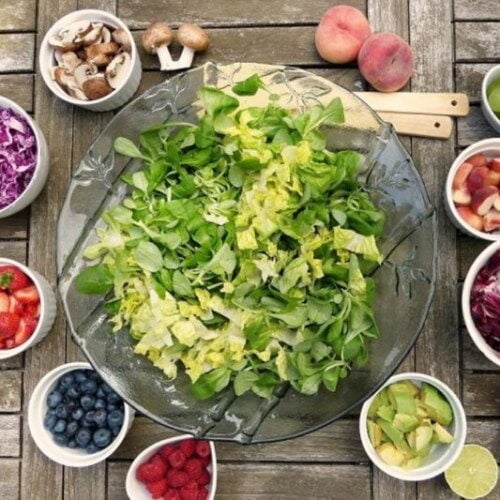How does food affect mood?
October 17, 2021 - Smart TMS

Following the impact of the pandemic on mental health, focus turns to how mental health can be better supported and recover from the previous 18+ months. From workplaces to schools and social groups, never has the emphasis on mental health been so important and so far reaching.
An estimated 70.9 million prescriptions for antidepressants were given out in 2018, compared with 36 million in 2008 1. Further, 23% more patients received an antidepressant item in the third quarter of 2020–2021 compared to the same quarter in 2015–2016 2 which clearly demonstrates the impact of the pandemic on the nation’s mental health.
As well as environmental triggers, food can also be a huge influencing factor on mental health and scientists are starting to understand this link more and more. And, as food is modifiable, it offers a promising route to improved mental health. The discipline called nutritional psychiatry focuses on these links between food and mood and is generating a growing evidence base.
So, what foods or diets support good mental health?
In 2017, the SMILES trial 3 based on following a Mediterranean diet was able to demonstrate a direct relationship between food and mood. During the trial, a group of adults with moderate depression were randomly allocated to receive either seven sessions of individual dietary advice from a dietician based around eating the Mediterranean diet or seven sessions of social support. The dietary advice group had significantly reduced their depression symptoms after 12 weeks which was also significantly more than the social support group.
So, what is the Mediterranean diet and how could it be effective in fighting depression?
The Mediterranean diet is low in;
- sugar
- refined carbohydrates (white bread, pasta, rice etc)
- saturated or trans fats
And high in;
- colourful fruits and vegetables
- wholegrains
- nuts and seeds
- olive oil with
- moderate amounts of fish and white meat but only small amounts of red meat and dairy foods
The link between the positive effects of a Mediterranean diet and its impact on mood, could be related to the anti-inflammatory nature of the diet. The plentiful coloured plant pigments, high fibre content and omega-3 fats in the Mediterranean diet all add up to a powerful anti-inflammatory cocktail which helps to combat the raised inflammatory markers often observed in people with depression and anxiety.
There is also increasing evidence for the link between gut health and brain health. Gut microbes produce chemicals that can act directly on the brain to influence mood and it is clear from animal studies that changing the pattern of gut microbes can influence behaviour. It is also a little-known fact that the gut makes large quantities of the same neurotransmitters that are used in the brain. Eating a Mediterranean diet is certainly associated with having a much more diverse and healthy pattern of gut microbes.
Finally, the quality protein from fish and white meat provides essential amino acids and other nutrients that the body needs to make neurotransmitters.
So, what does it all add up to?
Following these tips may help to increase your resilience and lower your risk for developing mental health problems.
- Eat an entire rainbow of different coloured plant foods every day
- Eat foods that contain omega-3 fats such as oily fish (eg. salmon, sardines, anchovies, trout, mackerel, herring) walnuts, chia seeds or flax seeds
- Reduce your consumption of sugar and refined carbohydrates (white bread, pasta, rice, and processed foods)
- Reduce coffee and alcohol consumption as these may both increase levels of stress hormones and raise anxiety levels.
- Regularly include foods with good sources of the essential amino acids tryptophan and phenylalanine which are needed to make the neurotransmitters serotonin and GABA.
- Tryptophan (chicken, turkey, red meat, pork, tofu, fish, beans, milk, nuts, seeds, oatmeal, and eggs).
- Phenylalanine (beef, chicken, pork, tofu, fish, beans, milk, nuts, seeds, whole grains, and vegetables like sweet potatoes).
- Regularly include fermented foods such as sauerkraut, live yoghurt, kimchi, kefir, tempeh, miso and kombucha which will help to promote a healthy balance of gut bacteria
- Exercise regularly – it’s important to find an activity you enjoy or even one you can do with friends to make it more likely that you will keep it up! Exercise should be fun and not a burden as you will more easily give something up if you are not enjoying it!
For anyone who struggles to implement diet and lifestyle changes, the support of a professional could be beneficial.
————————————————————————————————–
- Iacobucci G. NHS prescribed record number of antidepressants last yearBMJ 2019; 364 :l1508 doi:10.1136/bmj.l1508
- The Pharmaceutical Journal, PJ, March 2021, Vol 306, No 7947;306(7947)::DOI:10.1211/PJ.2021.1.62125
- Jacka, F.N., O’Neil, A., Opie, R. et al.A randomised controlled trial of dietary improvement for adults with major depression (the ‘SMILES’ trial). BMC Med 15, 23 (2017). https://doi.org/10.1186/s12916-017-0791-y
You might also enjoy our recent blog post about an impressive patient outcome for depression treatment with combined TMS and nutritional therapy
If you are a Nutritional Therapist and would like to know more about how TMS could support your clients with their mental health, please contact us on 0345 222 5678 or email info@smarttms.co.uk
Patients can also self-refer for treatment.
CONTACT US
- Tel: 0345 222 5678
- Email: info@smarttms.co.uk










